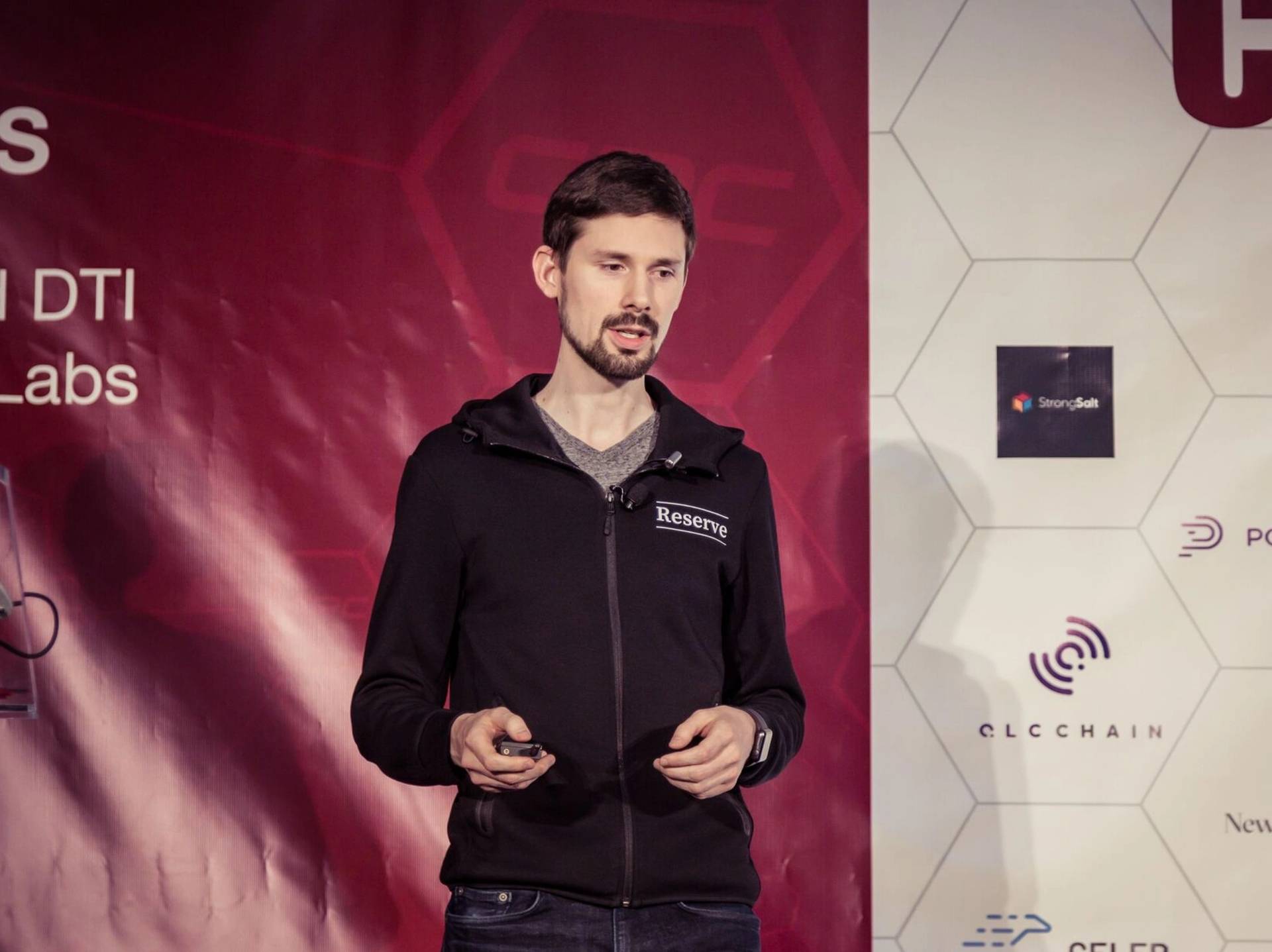위키 구독하기
Share wiki
Bookmark
Nevin Freeman
0%
Nevin Freeman
**네빈 프리먼(Nevin Freeman)**은 Reserve 프로토콜의 CEO 겸 공동 창립자이며 초기 단계부터 전략 및 개념 개발에 참여해 왔습니다. 그의 연구는 자산 담보 디지털 통화, 분산형 거버넌스, 장기적인 안정성을 목표로 하는 온체인 금융 시스템 설계에 중점을 두고 있습니다. [6]
교육
프리먼은 2009년 포틀랜드 주립대학교에서 교통 공학 학사 학위를 받았습니다. [1]
경력
2009년 프리먼은 업계 내부자 출판물인 RIABiz를 공동 창립하여 2011년까지 CTO로 재직했습니다. 퇴사 후 그는 맞춤형 의료 연구 회사인 MetaMed Research, Inc.를 공동 창립하여 1년 동안 CIO로 재직했습니다. 2016년 1월에는 교육 기관이자 회사 빌더인 Paradigm Academy를 공동 창립했습니다. 이듬해에는 매트 엘더(Matt Elder)와 함께 Reserve를 공동 창립했습니다. 2024년 1월, Reserve는 Reserve 생태계 및 프로토콜 개발을 지원하기 위해 두 개의 새로운 회사인 ABC Labs와 Confusion Capital을 출시했습니다. 프리먼은 현재 Confusion Capital의 사장으로 재직하고 있습니다. [2]
인터뷰
비트코인 이후?
2025년 10월 Decypher Podcast 인터뷰에서 프리먼은 규제 대상 금융 자산의 토큰화 문제, 규제 격차에서 스테이블코인의 초기 역할, 보다 안정적인 자산 담보 형태의 디지털 화폐 개발 동기에 대해 논의했습니다. 그는 비트코인을 주요 영감으로 언급하면서도 변동성을 지적하고, 위험을 줄이고 안정성을 높이는 방법으로 글로벌 자산에 대한 다각화를 설명했습니다. 프리먼은 암호화폐 지수 상품의 상대적으로 작은 규모를 전통적인 주식 지수와 대조하여 이러한 격차를 잠재적인 성장 영역으로 제시하고, 탈중앙화 금융 인프라가 온체인 유동성, 직접 소유권, 수탁자에 대한 의존도 감소를 통해 보다 효율적인 지수 상품을 어떻게 가능하게 하는지 설명했습니다. 그는 또한 금융 자산의 점진적인 토큰화, 규제 제약, 협력적인 규제 프레임워크의 필요성을 언급하면서 토큰화된 자산을 지원하는 탈중앙화 자산 관리 플랫폼과 세계적으로 인정받는 준비 통화에 대한 장기적인 비전을 제시하면서 시장 행동은 종종 예상치 못한 방식으로 발전하고 지속적인 적응이 필요하다고 언급했습니다. [7]
Reserve 비하인드 스토리
2023년 9월, 프리먼은 효과적인 이타주의 운동의 영향을 받고 영향력이 큰 솔루션 추구에 초점을 맞춘 소규모 창립 팀에서 프로젝트의 뿌리를 찾아 Reserve 프로토콜의 기원을 설명했습니다. 그는 팀이 인공 지능, 정신 건강, 동물 복지, 환경 문제와 같은 글로벌 문제와 미래 이니셔티브를 위한 재정 자원 창출 목표를 아우르는 관심사에 힘입어 야심찬 사고방식으로 문제에 접근했다고 설명했습니다. 프리먼은 비트코인에 대한 초기 노출과 안정적인 통화로 적합하지 않다는 결론을 내렸고, 이로 인해 팀은 대체 디지털 통화 모델을 탐색하게 되었다고 회상했습니다. 이러한 탐색은 하이퍼인플레이션 해결에 초점을 맞추어 특히 라틴 아메리카 지역에서 미국 달러 지원 암호화폐에 대한 액세스를 가능하게 하는 애플리케이션 개발로 이어졌습니다. 그는 또한 성장하는 글로벌 분산 팀의 역할을 강조했습니다. 그는 베네수엘라 국영 지원 암호화폐에 대한 이전 경험이 Reserve의 지역 전략에 영향을 미친 가보와 같은 개인의 기여를 강조했습니다. [8]
프레젠테이션
DeFi 시장 비전
2025년 7월, 프리먼, 빌리 샌더스, 앤드류 워스는 Confusion Capital의 협력 노력으로 탈중앙화 금융에서 토큰화된 증권에 대한 새로운 2차 시장 구조를 모색하는 디지털 증권 이니셔티브를 Monetarium에서 발표했습니다. 그들은 기존 규제 프레임워크가 주로 중앙 집중식 암호화폐 엔터티에 초점을 맞추어 DeFi를 거의 다루지 않았다고 논의하고, 이를 기관이 보관, 신원, 거래 모니터링을 감독하는 전통적인 금융과 대조했습니다. 발표자들은 통합 인증 접근 방식을 통해 반복적인 토큰별 KYC 프로세스로 인한 파편화를 줄이기 위해 신원 관리자, 거래 모니터, 거래 필터와 같은 규제된 역할을 포함하는 제안된 탈중앙화 규정 준수 프레임워크를 설명했습니다. 그들은 규정 준수 거래 필터링을 가능하게 하면서 사용자 개인 정보를 보호하기 위해 영지식 증명으로 지원되는 정의된 규제 구역 내에서 규정을 직접 온체인에 포함하는 모델을 설명했습니다. 그들은 모니터링 엔터티가 가명 식별자를 사용하여 의심스러운 활동을 보고할 수 있는 방법을 설명했습니다. 프레젠테이션은 규제 혁신 면제 하에 업계 참가자와 협력하여 프로토타입을 개발하고 테스트할 계획으로 마무리되었습니다. [9]
RSR로 변동성 완화
2024년 10월 Monetarium에서 열린 프레젠테이션에서 프리먼은 자산 담보 프로토콜이 직면한 장기적인 변동성 문제를 조사하고 RSR 스테이킹이 안정화 메커니즘으로서 잠재적인 역할을 논의했습니다. 그는 안정적인 자산을 묶는 것만으로 통화 안정성에 충분한지 의문을 제기하면서 역사적인 시장 하락을 언급했습니다. 그는 통화 지원의 안정성을 높이기 위해 참가자들이 변동성을 교환할 수 있도록 하는 구조화된 헤징 접근 방식을 제안했습니다. 프리먼은 명목 가격 변동보다는 구매력 변화를 중심으로 기본 개념을 재구성하여 실제 가치를 평가하기 위해 소비자 바스켓을 도입했습니다. 그는 자산 가치가 정의된 임계값을 초과하면 동적 테이블을 통해 보상이 할당되는 다양한 기간 동안 RSR을 잠글 수 있는 스테이킹 모델을 설명했습니다. 그는 시장 침체기에 적자를 충당하기 위해 RSR을 압류하여 채권과 유사한 상품으로 전환할 수 있는 방법을 설명했습니다. 그는 자산 위기 기간 동안 사전 정의된 거래 또는 헤징 전략이 반응형 접근 방식보다 변동성을 더 효과적으로 관리할 수 있는지 고려하면서 결론을 내렸습니다. [10]
잘못된 내용이 있나요?
